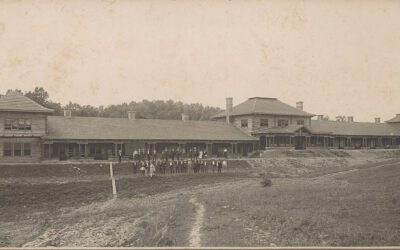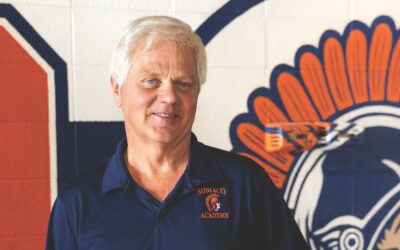Ten-year-old Eddie Tipton peered out the window and then down at the paper on his desk. In careful deliberate strokes, he sketches, like always. The boy is observant and when he sees things on the way to school – a squirrel, a cat, a flower – his mind captures them as through a lens and he develops them at the tip of a pencil, pen, or crayon.
A bright kid, Eddie’s already come to know the concept of circumstances beyond his control. It would always be harder for him, whatever he tried to do or be; the road always a little steeper, the mud around his feet a little thicker. Drawing somehow helps, which is why Eddie never misses the chance to do it. Faces and dogs and trees, drawn on scraps, on paper grocery bags and the brilliant white insides of Kleenex boxes. There’s a magical quality to art; in his sketches, the electricity is never turned off and his mom is never sick and the address where they live doesn’t change like the weather.
Eddie feels the presence of someone looking over him. Miss Luce. He’s seen her take notice of his art, but he doesn’t know the half of what she knows about him ― of his single mother struggling to feed four little boys; of the file that follows kids like him around from school to school, sometimes several schools. Sometimes, as in Eddie’s case, through twenty-six schools before sixth grade.
Not all teachers invest in kids like that, because what’s the point? He’ll probably be gone sooner than later, anyway. But Miss Luce is not most teachers. That’s why she allows him to doodle, to create, as it gives her insight into things of importance to him, things he yearns for that he’s either too young or too shy to express verbally. She sees these things and as he turns in his paper or passes out the door to recess she comments on his drawing, says that she likes it, and she means it. Every time she does, he blooms a little like the wayward first jonquil, an unexpected splash of color against the dark palette of winter.
Later that year, the bicentennial, Miss Luce asks Eddie to draw something for a school program. He draws backdrops and scenes of American culture – the Roaring ‘20s, the TV show Gunsmoke. One day the local newspaper shows up and she has them snap his picture next to his creations. When it prints, he’s not just another poor kid anymore. People all over town, however fleeting, know his name.
***
Principal Eddie Tipton, fifty-six, gazes across the desk at the morose teen slumped in the chair. In thirty-four years in education, twelve of it as principal of Van Buren High School, he’s seen plenty of kids sitting in that very spot. Some were legitimately tough cases, but not this one; this is simply another kiddo crying out for attention. Chances are he’ll grow out of this phase, but Heaven help everyone until he does. Eddie musters a stern look, issues words of warning and sends the kid back to Study Hall. What would Miss Luce do?
Over lunch, Eddie punctuates his meal by looking at photos he’s warehoused on his phone. What appears to others as merely woods and water is in fact homework for the seasoned educator. He’s got an eye for wildlife subjects but unlike people, wildlife won’t hold a pose or wait for you to adjust the light. That must come from imagination, experience and yes, from photos. Art is really just manipulation of geometric shapes, at least to his way of thinking, and this perspective allows him to capture a duck eternally on the wing or a bass perpetually in mid-leap.
He’s learned these things by doing and has ever since his college days. Back then, he was going to major in art and learn to teach it, but the curriculum clashed with football, and since football is what paid his way to Arkansas Tech University, art had to take the back seat. It’s not like it was the first time – that honor goes to the art scholarship he earned while attending Van Buren High School that he had to turn down to stay close to home and raise his little brothers. Still, working and improving on his own, he got good enough to sell a few pieces in college, twenty bucks here and there, in pencil or paint.
For years, his passion subject has been wild turkeys, far more majestic in the wild than their domesticated cousins and far more beautiful than most city folks give them credit for. He delights in capturing the regal toms, blue and pink at the head, skin peppered and folded, the cumulous brown and black feathers that take on a slightly iridescent sheen as the light hits them. In his studio today, canvases of turkeys strut among pieces depicting deer and elk and wood ducks.
The prize of them all is a piece he recently entered in a contest sponsored by the Arkansas Game and Fish Commission to select the official artwork for this year’s Turkey Stamp, a permit which hunters must buy to legally harvest gobblers in the Natural State. Eddie always wanted to see how his work stacked up against full-time wildlife artists, but residual insecurities can be hard to shake, and he nearly didn’t enter at all. Entry day he waffled until time nearly ran out before sending in what would be the winning work. It was the ultimate validation, a long way from drawing on grocery bags.
After three decades of teaching history and setting knuckleheads straight, Eddie can see retirement around the corner and has had time to picture himself and his art in it. Maybe he’ll teach art classes at last. Maybe he’ll just create, especially now that his cherished granddaughter has taken to helping in the studio. With a turkey stamp to his credit and an online art dealer carrying his work, people all over the internet are learning his name.
***
Eighteen-year-old Eddie Tipton opened his eyes and watched the ceiling above his head come into focus. The glow of late December couldn’t do much to lighten this room with its frayed edges and dingy ceiling. It was the same thing he woke up to every day; even when they moved around, which was often, he noticed the ceiling always looked the same. Somber like a haggard cloud. Suffocating like poverty.
Today was the last day of school before Christmas break and soon, most of his classmates would be doing what normal families do this time of year. Dress in church clothes. Slide turkeys into ovens. Welcome loved ones. Tear open presents. There’d be none of that at his house, of course, but that didn’t mean he didn’t feel intently that it was happening all over town. He knew this as clearly as the lights he saw on other people’s houses and the brightness he felt in other people’s lives.
This year seems particularly heavy, given his mother’s illness. Being sick, she can’t work and not working means they’ll likely lose the rent house they’re in, the one where the power company has already been jolly enough to shut the power off a couple of times leading up to Christmas.
Being the oldest, Eddie is the man of the cold, darkened house, looking out for his siblings in addition to his studies and football. He is good at football, better than other kids with other options after graduation. Football is his ticket to college and out from under a life of dirty walls, cracked windows and government-subsidized ceilings. Out of the mud that the poor slogged through in life, that sapped the strength of so many as their feet slid, holding the exhausted in place unable or unwilling to fight forward any longer.
Over the past two years, Eddie’s artistic talents have been honed right alongside his athletic skills. Art allows him a freedom of possibility unknown on the unlit side of town, so he soaks up every lecture, dives into every project including a mural downtown. People take notice. It feels good.
As school dismisses for the semester, Eddie’s called aside. That’s usually not a good sign, but the teacher calms him, tells him nothing’s wrong. A coach saw something, told an administrator, an administrator told a teacher, and a teacher told another teacher. All together, they pitched in for all the Tipton kids, gathering hand-me-down furniture and helping make sure the lights stayed on. They hand the stunned teenager a parcel of brightly wrapped packages. “Merry Christmas,” echoes in his disbelieving ears.
On Christmas morning, Eddie opens the package with his name on it. Inside, he finds a box of canvas and paints and sketch pads purchased by the teachers who’ve seen his talent. In many households this morning, it ranks as a modest gesture but to Eddie, it’s something he’ll cherish as the best he ever got, the one that said: Let this gift develop yourgift. He opens one of the impossibly smooth and white sketch pads, looks out the window, and starts to draw.
Find Eddie’s latest work online at wildwings.com/pages/eddie-tipton.




